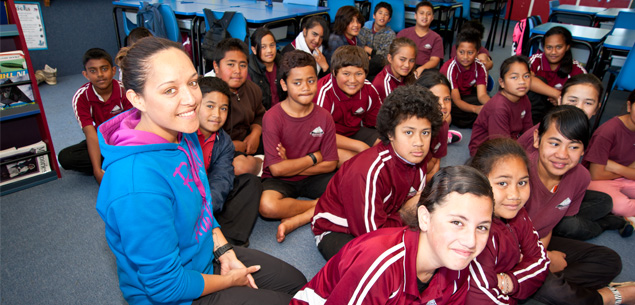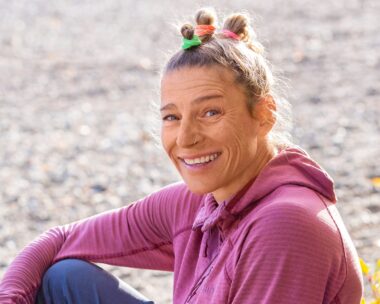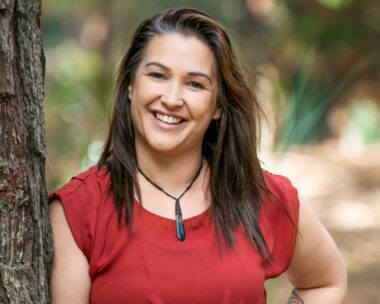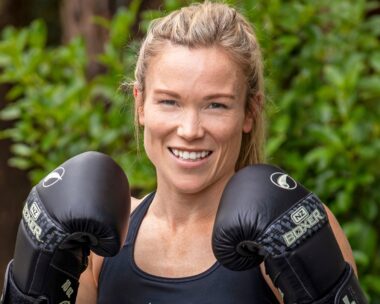Meditation is typically the domain of Buddhists and yoga enthusiasts. But the mind-relaxing technique is now being used in an Auckland primary school to help children concentrate in class.
When the bell rings at Otara’s Sir Edmund Hillary Collegiate Junior School, pupils aged ve to 12 start their day with TM Quiet Time for 10 to 15 minutes and repeat the process again before they go home. Transcendental meditation, or TM for short, is an ancient Vedic Indian tradition which was introduced into Western culture in the late 1950s.
It is now being introduced into schools by Stress Free Schools New Zealand in an effort to reduce disruptive behaviour in classes. Like the previous 18 principals before her, Kataraina Nock was fed up with misbehaving children being sent to her of ce and decided that TM sessions were worth a try.
“They were looking at implementing the programme in a school and I put my hand up straightaway,” she says with a laugh. “I was definitely in the right place at the right time.”
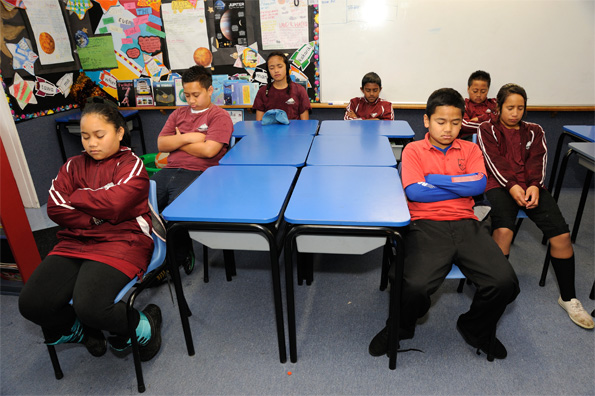
Just 15 minutes twice a day has significantly helped the children.
When Stress Free Schools managing director Lucy Davy first introduced the programme to the school in 2009, she saw a sea of children waiting outside the principal’s of ce because they were in trouble. But since the introduction of meditation sessions, all that has changed.
TM requires children to sit at their desks for up to 15 minutes with their eyes closed. During this time, the pupils experience quieter levels of thinking, which Stress Free Schools says helps to reduce stress levels and can lead to many mental and physical health bene ts.
“The children seemed to pick up the technique so easily,” says Lucy. “ The queue of kids I saw waiting to report to the principal all those years ago just isn’t a reality any more. “It’s a wonderful place to be and the focus in the class has improved so much. There has been a real bene t to the children’s lives.”
Lucy hopes to introduce the programme to other schools in New Zealand and says “the fact that this has research to back it up is a real bonus when we’re talking to the teachers”.
TM is practised by millions of people worldwide, including celebrities such as Oprah, Russell Brand, Clint Eastwood and director Martin Scorsese.
“I learned to meditate when I was five years old,” says Lucy. “Years later I started working with my brother Martin – a teacher of TM – on the programme for Sir Edmund Hillary Collegiate Junior School. I was so excited when we travelled out there to give a presentation to the teachers, and we never looked back.”
She says very early on the children “became much more peaceful, which was so different to the turbulent history associated with the school”. The decile-one school had a troubled reputation with claims of violence and a lack of academic achievement.
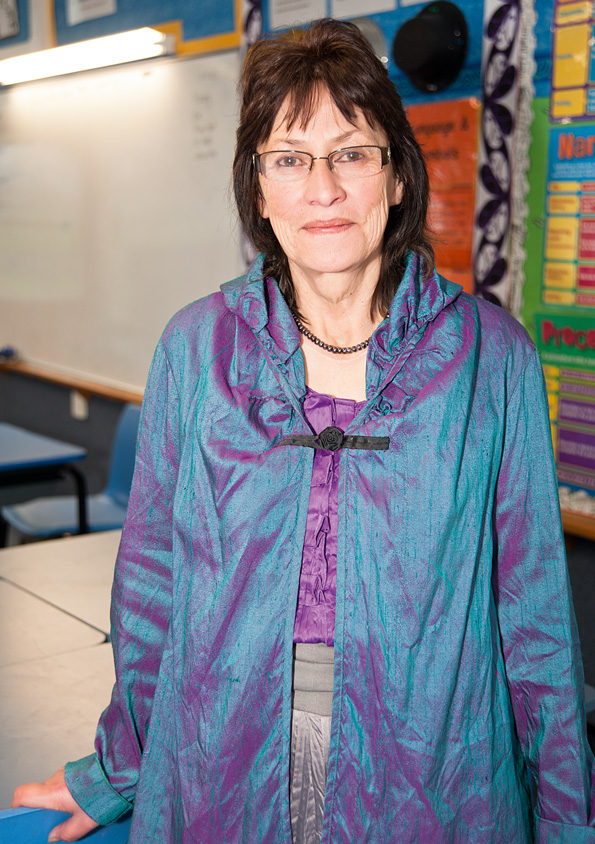
‘The queue of kids waiting to report to the principal just isn’t a reality any more,’ says Kataraina.
Kataraina had begun a process of change within the school when Lucy first began working with them, but says having the Stress Free Schools programme sped up the changes and brought things to fruition.
“Although it takes time to turn a poor reputation around, it is definitely changing,” she adds, with the children now welcome at interschool events after years of being asked not to participate.
“People were so happy to see the change in our children and to have them back. I’d love to see the programme in schools of every decile rating. For our children, it has been life changing.”
Helene Ravlich
For more information visit the Stress Free Schools website at sfs.org.nz
